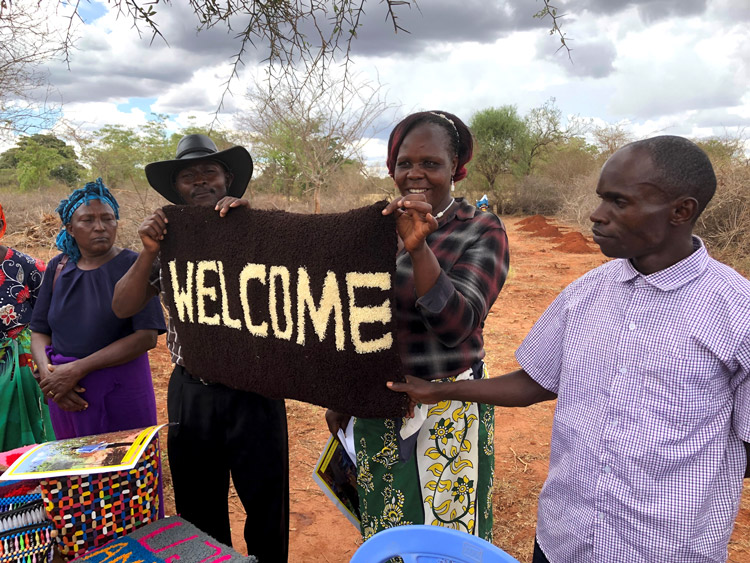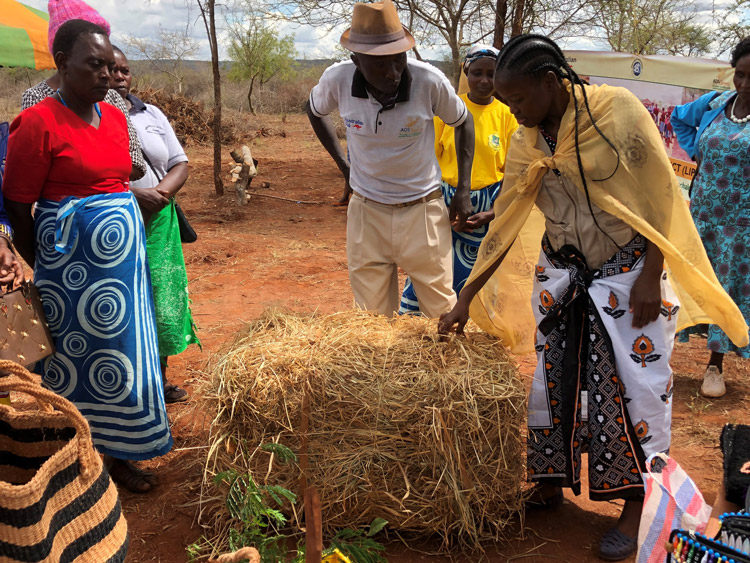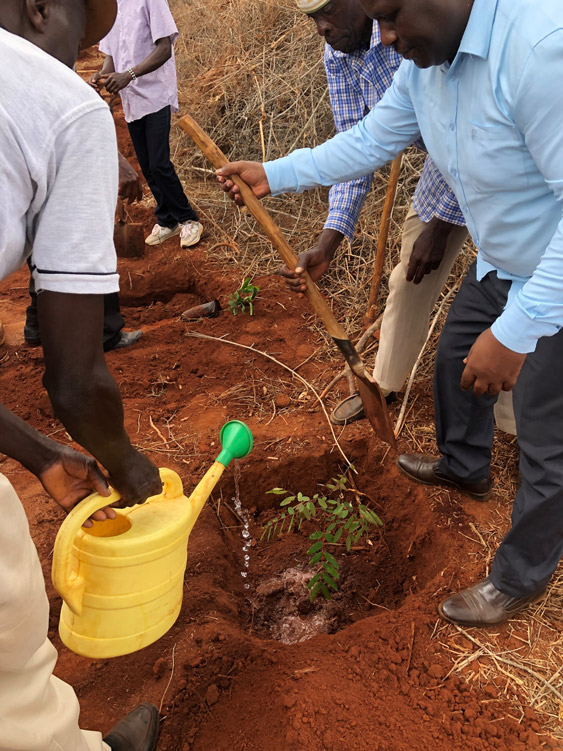AID visits Kenyan Projects
When AID’s Africa Program Manager, Dr Julianne Stewart, visited AID’s partner, ADSE, and their communities in Kenya recently, she was both inspired and saddened.
I was inspired by the hard and creative work of both our partner and the communities they serve and yet saddened that the challenges they are working with have increased so much in recent years. The combined effects of prolonged drought and economic hardship brought are taking their toll. Food costs have been affected both by a shortage of grain coming from Ukraine and Russia and by repayments of debts the Kenyan government has incurred in Chinese government-funded infrastructure programs. This has all resulted in real hardship for millions of people. And this hardship leads to dissatisfaction, displacement, and conflict.
But I was also deeply inspired by how far communities who are part of the program AID supports have come. I visited the Kyumbuke organisation which acts as a kind of umbrella organisation for all the smaller self-help groups in the community of Kyua of which it is made up. The members spoke about what they had achieved in the five years the project had been operating. Here are some of their comments:
Francisca, a woman I first met when she was proudly digging the community’s first farm pond*, said, “Women are shining now because they do not have to travel to collect water. Life is a bit easier than before. Previously women didn’t participate in water [storage] activities here, but you remember it was we women who dug the farm pond in 2018. From those farm ponds we learnt about growing vegetables and how to make kitchen gardens. We go everywhere now…I have even constructed a latrine.”
John Mutua, the head of ADSE, who accompanied me to the village, added, “Women now have money to buy their own cows. Previously women didn’t own any property.”
And the Kyumbuke organisation itself has, through the activities they learned through the project, raised enough money from their farms and other businesses developed during the project to buy a sizeable plot of agricultural land. They want to use it as a headquarters for all the activities that they intend to continue once the project funding ends this year. My meeting with them took place on this plot of land, under a tarpaulin they had bought for shade. They have already fenced the land and started planting trees. They also hope to build a meeting room.
Benjamin, the organisation’s chairperson, said, “We want to do collective farming on the land – grow cereals, amaranth, trees, and storage for animal feed. We want to teach others about conservation agriculture (digging deep pits which hold more water for longer), about the medicinal value of moringa trees, and teach other women how to make mats and baskets for sale. You remember we had a lot of problems with water? Now we have two boreholes which each have lots of water, and our two shallow wells are also producing water.”
They also want to demonstrate skills such as hay-baling using a box or by simply digging a hole and baling hay that way. Traditionally the farmers in this part of the world have not baled hay for dry season feeding of their animals.
Benjamin added, “The important thing is training. This has been very successful. When you go into every household now you will see a kitchen garden. We did not have these before.”
Later that day I visited the Kisesini borehole which not only provides water to nearby farms, but also uses solar pumps to pipe the water to the local clinic and maternity hospital.
Manager of the clinic, Dr John Bai, shared, “Previously we had serious challenges with water. We did have rainwater tanks, but they would quickly run out of water. Now we have enough water for the hospital. We even have a vegetable garden to feed the mothers when they come. We use the borehole water for cleaning and the tank water for drinking. We no longer have any anxiety about water. It has even enabled us to expand our facilities.”
Thanks to all those who have supported this project over the past five years. Your support has really made a positive impact and will put these communities in a good position to weather the hardships ahead.
*A farm pond is a large farm dam.
AID acknowledges the support of the Australian Government through the Australian NGO Cooperation Program (ANCP)

AID is welcomed to the Kyua community ©AID

The Kyumbuke organisation demonstrates hay baling at their new demonstration plot. ADSE Project Officer Eunice is on the right ©AID
